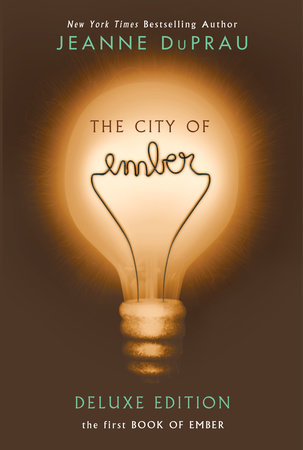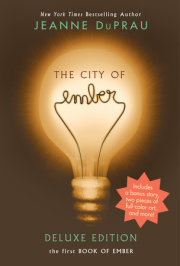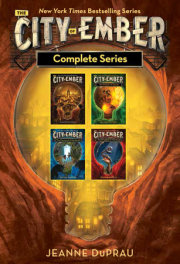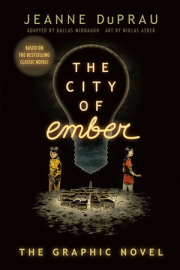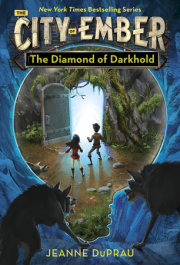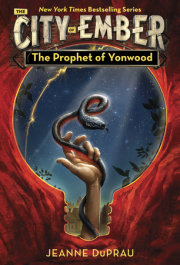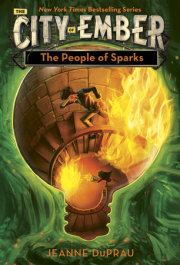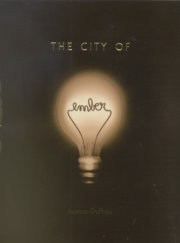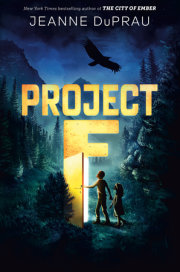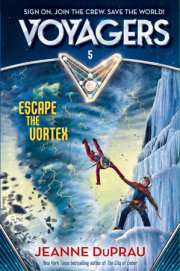"What could be more interesting than thinking of mysterious happenings, finding the answers to intriguing questions, and making up new worlds?"--Jeanne DuPrauJeanne DuPrau has been a teacher, an editor, and a technical writer.
The People of Sparks is her second novel and the sequel to the highly acclaimed
The City of Ember. Ms. DuPrau lives in Menlo Park, California, where she keeps a big garden and a small dog.
ABOUT THE AUTHOR
“When did you decide to be a writer?” people often ask me. Well, it was like this:
At about age 6, I wrote my first book, or at least the first book of mine that survives to the present day. It’s called “Frosty the Snowman.” It’s five pages long, illustrated with red and green crayon, and bound with loops of yarn.
My next extant work dates, I think, from the seventh grade. It’s a collection of stories handwritten on lined newsprint. One is about a merry-go-round that mysteriously flies off into the air. Another is about a girl who mysteriously disappears while ice skating. A third is about a seashell that mysteriously opens a door to an underwater world. It’s not hard to deduce that mysterious happenings were what I loved best at the time–a wardrobe door leading to Narnia, a rabbit hole leading to Wonderland, a nanny who flew away when the wind changed.
A year or two later, I started reading Dickens. I loved the world of Dickens’s novels, full of colorful characters and wildly complicated plots. I decided to write Dickensian stories myself. To prepare for this, I put together notebooks with headings on each page for character names, settings, plot ideas, and beginning sentences. I wrote pages and pages of great names (Ophelia Gordonswaithe, Hester Hollyhock), lists of settings (an insane asylum, a deserted railway station), and beginning sentences (“A sharp laugh broke the heavy silence”). I didn’t actually write very many stories, though. I think I wrote three or four, but only one of them went all the way to the end. The rest petered out after a couple of pages–or a couple of paragraphs.
But I kept at it. All through school, I wrote and wrote. Some of this writing my teachers assigned–book reports, college essays, my senior thesis. Some I assigned myself–stories, poems, journals, letters. After I graduated from college (an English major, of course), I did several different kinds of work, but they all involved writing and reading in one way or another. I taught high school English (and started a creative writing club for my students). I worked as an editor in educational publishing companies (and wrote stories for reading textbooks). I worked for a computer company (and wrote about how to use computers).
At the same time, after work, on weekends, whenever I could fit it in, I was doing my own writing. I wrote about people I knew, experiences I’d had, books I’d read, ideas that had occurred to me. I started sending these pieces of writing out into the world, and quite often they were published. I wrote a book, and then another book. The more I wrote, the more things I thought of to write about.
So the answer to the question, “When did you decide to be a writer?” is: Never. I never decided anything–I just wrote and kept on writing, because writing was what I liked to do. What could be more interesting than thinking of mysterious happenings, finding the answers to intriguing questions, and making up new worlds? Writers have a great job. I’m glad to be one.
View titles by Jeanne DuPrau

